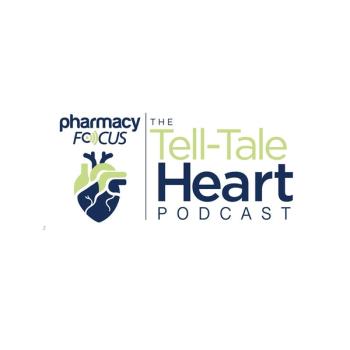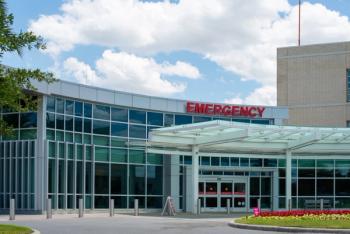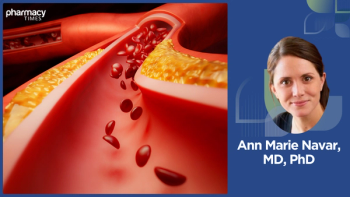
FDA Grants Orphan Drug Designation for ABD-147 for Neuroendocrine Carcinoma
Previously, the FDA granted fast track designation to ABD-147 (Abdera Therapeutics Inc) for extensive stage small cell lung cancer.
The FDA granted orphan drug designation to ABD-147 (Abdera Therapeutics, Inc) for the treatment of neuroendocrine carcinoma. The investigational drug is a next-generation precision radiopharmaceutical biologic that delivers Actinium-225 to solid tumors that express DLL3.1
“Neuroendocrine carcinomas, including [small cell lung cancer (SCLC)] and [large cell neuroendocrine carcinoma (LCNEC)], are aggressive and challenging to treat effectively with current systemic therapies,” Philippe Bishop, MD, chief medical officer at Abdera Therapeutics Inc, said in a news release. “By delivering a potent radioisotope to neuroendocrine tumors expressing DLL3 with custom-engineered PK properties, we believe ABD-147 has the potential to become a best-in-class DLL3-targeting treatment for aggressive neuroendocrine tumors...this orphan drug designation for neuroendocrine carcinoma further underscores the potential of ABD-147 development to offer a significant advantage beyond approved drugs.”1
Neuroendocrine carcinoma tumors affect the nerve cells and hormones and can develop wherever endocrine cells are present. Symptoms are categorized as either hormonal (severe diarrhea, severe gastric ulcers, or uncontrolled blood sugar that responds poorly to treatment) or mechanical symptoms (small bowl obstruction or pain related to one particular body part). It estimated that 12,000 individuals in the United States will be diagnosed each year.2
DLL3 is a protein in the Notch pathway that affects development and regulation of neuroendocrine versus epithelial cell differentiation in the lungs. For high-grade carcinomas, which include SCLC, DLL3 is upregulated and expressed on the surface of the cell. Further, because of the high specificity in expression on cancer cells, DLL3 is a good target for SCLC and other DLL3 solid tumors, according to Abdera.3
A first-in-human phase 1 clinical trial will be conducted for ABD-147 in patients with SCLC or LCNEC who previously received platinum-based therapy. The open-label clinical study will evaluate the safety and preliminary efficacy of ABD-147 and serve as the basis for future developments for the drug.1,4
Previously, the FDA granted fast track designation to the drug for extensive stage SCLC. In May 2024, the FDA cleared the investigational new drug application. According to Abdera, the global incidence for SCLC and LCNEC is approximately 325,000 patients, with an annual growth rate of 4% annually through 2029. For the US, the incidence is an approximate 35,000 new cases a year. The tumors often affect other parts of the body, which include the brain, liver, and bone. The median survival from diagnosis is reported to be 2 to 4 months without treatment. The overall survival at 5 years, with treatment, is approximately 5% to 10% for SCLC and 15% to 25% for LCNEC. New treatments are essential for these disease states as they often have poor prognosis and poor outcomes with current treatment.3,4
Recently, in August 2024, PT217 was also granted orphan drug designation for neuroendocrine carcinoma as well as SCLC in 2022 and fast track designation in 2024 for extensive-stage SCLC.2
REFERENCES
1. Abdera Therapeutics Announces FDA Orphan Drug Designation for ABD-147 for the Treatment of Neuroendocrine Carcinoma. News release. Abdera Therapeutics. September 5, 2024. Accessed September 5, 2024. https://www.businesswire.com/news/home/20240904002278/en/Abdera-Therapeutics-Announces-FDA-Orphan-Drug-Designation-for-ABD-147-for-the-Treatment-of-Neuroendocrine-Carcinoma
2. Gallagher A. FDA Grants Orphan Drug Designation to PT217 for Neuroendocrine Carcinoma. Pharmacy Times. August 19, 2024. Accessed September 5, 2024. https://www.pharmacytimes.com/view/fda-grants-orphan-drug-designation-to-pt217-for-neuroendocrine-carcinoma
3. Abdera Therapeutics. Pipeline. Accessed September 5, 2024. https://abderatx.com/pipeline/
4. Gallagher A. FDA Grants Fast Track Designation to ABD-147 for Small Cell Lung Cancer. Pharmacy Times. July 1, 2024. Accessed September 5, 2024. https://www.pharmacytimes.com/view/fda-grants-fast-track-designation-to-abd-147-for-small-cell-lung-cancer
Newsletter
Stay informed on drug updates, treatment guidelines, and pharmacy practice trends—subscribe to Pharmacy Times for weekly clinical insights.

































